Health Benefits Of Coffee
There’s nothing quite like a decadent cup of joe for a quick burst of energy!
Coffee is a beloved morning beverage (or a mid-afternoon pick-me-up) that is most known for its remarkably high caffeine content.
This means a cup of coffee has an impressive ability to center your focus while also boosting your energy and mood levels to help you face the day ahead.
In fact, a lot of people are reliant on these effects provided by their daily coffee fixation to start and end their day on the right foot, and to keep them energized for just about any activity.

If you’re someone who finds it inherently difficult to imagine any kind of morning without a cup of coffee to accompany you, we have some great news – your morning wake-up is also linked to lots of amazing health benefits!
Yes, you read that correctly. Your cup of coffee is not only delicious but is also packed full of valuable compounds including antioxidants that work to tackle free radicals head-on, guard against disease, and also reduce inflammation.
All the more reason to begin brewing, right?
If you want to know more about the most important health benefits of coffee then you’ve come to the right place! Here is everything you need to know.
Nutritional Benefits Of Coffee

Coffee has a bitter taste that can be sweetened to your liking. But aside from pleasing your taste buds, did you know that coffee has a whole load of nutritional benefits?
There are many drinks high in caffeine including energy drinks (80mg), tea (45mg), hot chocolate (6mg), and, most impressively, coffee (95mg).
If you were to have a 100ml cup of coffee with milk, you would be consuming the following:
- 0.4g of fat
- 0.5g of carbohydrates
- 7Kcal / 31 KJ
- 0.5g of protein
Black coffee is one of the most polyphenol-rich drinks in the world, with a total of 214 mg of polyphenols per 100ml. This is a plant compound that might have a protective and almost antioxidant effect when consumed.
It’s the primary source of hydroxycinnamic and phenolic acids in a western diet.
The best coffee to have is organic fresh (ground or beans) as it has a much higher antioxidant content than other types of coffee, with both medium and light roast blends much more preferable to dark blends.
To experience all of the main nutritional benefits of drinking coffee, you should aim to consume a reasonable amount (anywhere up to 4 or 5 cups a day) so that you don’t suffer any health-based consequences.
Boosts Energy Levels

Yep – coffee has the full potential to make us look and feel more energized to face the day ahead. Caffeine buzzes can be found in soda and energy drinks but the most prominent place to get a real energy boost is directly from a cup of well-sourced coffee.
Coffee contains the central nervous stimulant we all know as caffeine. It has an innate ability to fight any level of fatigue and is also known to dramatically increase energy levels, too. Caffeine is the reason why coffee is known to help maintain energy levels and alertness.
Coffee is absorbed directly into the bloodstream and directly travels through to the brain where it interacts with neurons that might improve mood, energy, memory, and even cognitive functions. However, this reaction will only occur if coffee is consumed in moderation.
This action occurs as caffeine blocks the receptors of a neurotransmitter called adenosine, which then goes on to increase the levels of other neurotransmitters residing in your brain that act in the same way to regulate energy levels. This includes dopamine.
There have been many studies on the effects of caffeine on physical activity. Decades of research has proven that caffeine is effective for enhancing sport performance.
However, according to the Journal of the International Society of Sports Nutrition, consuming caffeine before exercising or partaking in physical activity is the key to greatly improving performance, reducing feelings of fatigue, and increasing energy levels all at the same time.
Though it’s great to have an extra caffeine boost in your life, you must make sure not to drink too much caffeine. This is because drinking too much could potentially begin to make you feel symptoms of experiencing a caffeine withdrawal such as irritability, muscle pain, and headaches.
Linked To A Lower Risk Of Type 2 Diabetes
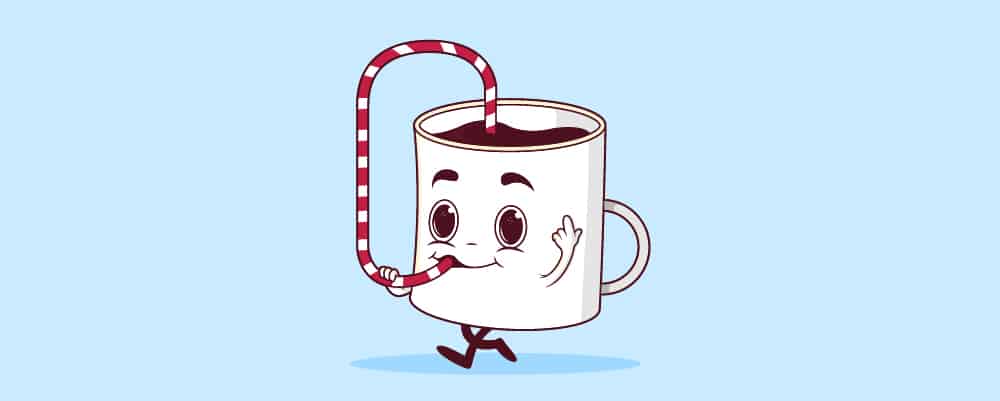
Type 2 diabetes impacts almost 10% of all people in the US. As a result, type 2 diabetes remains one of the most commonly seen chronic conditions. The core risk factors of developing such a condition include being overweight, over the age of 45, and living a sedentary lifestyle.
There has been some research carried out into the positive effects of regular coffee consumption. Most importantly, daily coffee consumption has been associated with a decreased risk of developing type 2 diabetes in the long term.
Coffee is rich in antioxidants and might even have a positive impact on insulin sensitivity, metabolism, and inflammation – factors that are all involved in the development of type 2 diabetes. In individuals who have type 2 diabetes, insulin is either in short supply or the cells ignore all insulin.
A review of 28 studies found that each cup of coffee consumed each day can be linked to a 6% lower risk of having type 2 diabetes. This is largely thought to be because coffee has the power to preserve the function of all beta cells within the pancreas, which is responsible for producing insulin to regulate blood sugar.
Aim to consume around 3 to 4 cups of coffee a day to limit the risk of developing type 2 diabetes.
May Promote Weight Management
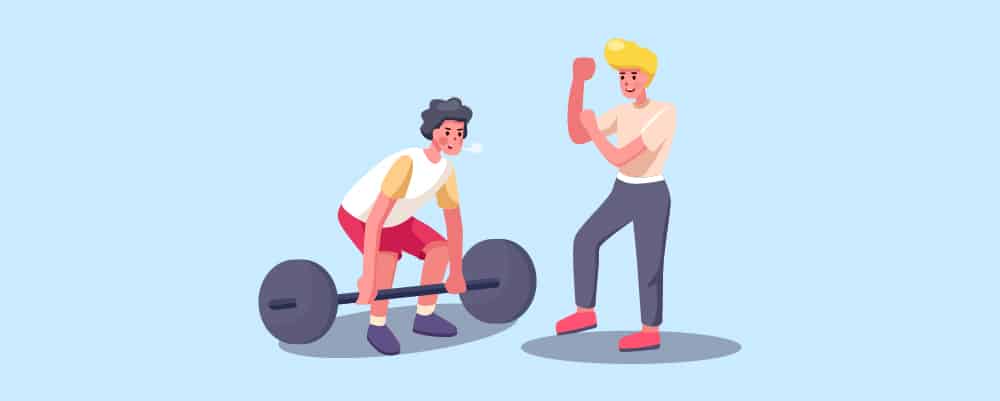
According to scientists Sirotkin and Kolesárová, coffee has the potential to support gut health and alter the way your body stores fat. These are two essential factors that might be quite beneficial for weight management.
Coffee can alter appetite control and slightly improve metabolism which may aid in weight loss. However, this depends on the way that you drink your coffee. For example, black coffee without the additional ingredients (like sugar and milk) is low in calories and will help you on your way to becoming a healthy weight.
On its own, coffee is an extremely low-calorie beverage to have – and is great if you are planning on eating in a caloric deficit to lose weight.
If you’re trying to significantly influence your metabolism to lose fat, you may have to consume large doses of caffeine to do so.
Provided you do not load your coffee up with additional sweeteners, you could find an easy way of managing your weight simply by making a slight change to your morning caffeine habit.
A study found that individuals who have previously lost weight and maintained the loss were almost 18% more likely to ensure the weight is kept off over time in comparison to non-coffee drinkers.
In short, caffeine is at least somewhat helpful in weight management.
Linked To A Lower Risk Of Depression

Is there such a thing as food for a good mood? The answer is yes! Well, in this case, it’s a drink rather than food, but effective nonetheless.
Coffee drinkers may not simply appear to be in high spirits but are reducing the risk of feeling depressed with each cup that they drink.
In a study titled “The SUN Project”, scientists found that consuming around four or more cups of coffee each day can be associated with a lower risk of depression.
Coffee also has ferulic acid, caffeic acid, and chlorogenic acid in its makeup. These acids have the power to reduce the level of inflammation of nerve cells that usually takes place in the brain of individuals struggling with depression.
This could reduce the distress and discomfort that is usually brought on by depression, a lot of which can be put down to inflammation. This makes coffee a much more effective beverage for reducing or lowering the risk of depression than other drinks, such as tea.
A study of more than 200,000 people has shown that total caffeine intake could have prominent links to a lower overall risk of death by suicide.
Could Protect Against Liver Conditions

Did you know that your morning cup of coffee could lower your risk of developing any stage of liver disease?
Regularly consuming moderate amounts of coffee could prevent more serious conditions like liver cancer. Scientists have also discovered that coffee is great for individuals with hepatitis C, which is a virus that directly infects the liver. This is because coffee reduces oxidative damage, slowing down the disease’s progression.
Coffee also lowers the overall risk of developing other liver conditions including cirrhosis, fibrosis, and hepatocellular carcinoma – the most commonly seen type of liver cancer.
Other research has shown that regular coffee consumption has associations with a decreased rate of liver stiffness. This is typically used to assess fibrosis.
However you choose to prepare your coffee – whether that’s as an espresso, instant, or filtered – drinking two or more cups every day has been known to slow down the progression of liver disease in certain individuals. It has also been shown to have lower rates of liver cancer and liver scarring.
Though it’s not harmful to drink some coffee, a core part of having great liver health is to live a better lifestyle. This could include actively reducing the amount of alcohol that is consumed, eating a balanced diet, and regularly exercising.
Essentially, coffee consumption can be associated with having a more protective effect and a lower risk against things like chronic liver disease. Researchers are still figuring out just how much coffee impacts the liver but the health benefits of drinking the beverage can be traced back to its anti-fibrotic and anti-inflammatory properties.
Supports Heart Health

There is research that shows drinking coffee to be pretty beneficial for heart health. Coffee is full of substances that might help to guard your heart against potentially life-threatening conditions like heart disease.
A moderate amount of coffee is also known to block the receptors that are best known to be involved in the process of creating abnormal heart rhythms.
One review found that drinking between three and five cups of coffee each day had links to an increase in the risk of developing heart disease. Drinking more than one cup of caffeinated coffee a day has the potential to reduce the risk of heart failure by up to 15%.
In fact, the charity and research center for heart conditions called Heart, has announced this statement – “people who drank more coffee had a lower long-term risk of heart failure”. This does not extend to individuals who opt to drink decaf.
However, depending on the amount that is consumed, caffeine can have a serious negative impact on blood pressure levels. As a result, individuals with high blood pressure might need to properly moderate their overall caffeine intake.
Too much caffeine could also result in heart palpitations or a highly irregular heartbeat.
Although there isn’t much evidence to support the act of prescribing coffee to lower your overall risk of developing heart disease, recent studies have demonstrated that coffee is good for your heart health.
The Potential To Live Longer

Without added sugars and calories, coffee is deemed one of the most healthy drinks on the planet.
A typical cup of coffee contains many compounds that tend to offer quite a few different health benefits. Many people may expect this to be caffeine but the most beneficial compounds aren’t caffeine!
The natural chemical compounds in the coffee beans come out when the hot water is run through the coffee grounds while brewing. A lot of these compounds are antioxidants that help to protect your body against damaging free radicals and, more specifically, oxidative stress.
Oxidation is said to be one of the most prominent mechanisms behind serious medical conditions like heart disease and cancer or aging. This suggests that drinking coffee regularly could limit the number of potentially life-shortening conditions you are exposed to, and prolong your life.
The research showed that drinking the sweet spot of anywhere from three to five cups of coffee a day can potentially lengthen your lifespan by lowering the risk of developing fatal conditions such as heart disease.
However, the total influence of coffee on aging and mortality isn’t yet completely understood, and a lot more research is needed to make any conclusions. But it is safe to say that knowing the general guidelines for coffee consumption could work in your favor in terms of prolonging your life.
May Enhance Athletic Performance

Athletes and sports enthusiasts are always on the lookout for ways to get their energy levels up. There’s nothing quite like a short, sharp burst of energy from a cup (or three) of highly caffeinated coffee to prolong exercise performance!
According to science, drinking coffee before exercise can improve people’s endurance and decrease perceived exertion. It’s also a great way of focusing the mind on the task at hand, which allows individuals to perform better.
A dose of between 3 and 13 mg of caffeine per kilogram of your body weight has been shown to have a positive impact on the rate of athletic performance. This is due to the stimulating effects of caffeine on the central nervous system.
Athletes can learn how to optimize their performance once they completely understand the best possible time to consume caffeine, how much their body needs, and the type of product that best suits them. Caffeine can make all the difference and may help an athlete to either win or fall short of a particular performance goal.
However, it is widely believed that the most effective way of ensuring a performance boost is by allowing your body to regain its natural sensitivity to caffeine. So, while caffeine is great for short bursts of improved athletic performance, it isn’t great for the long run!
Your Body May Process Glucose (Or Sugar) Better
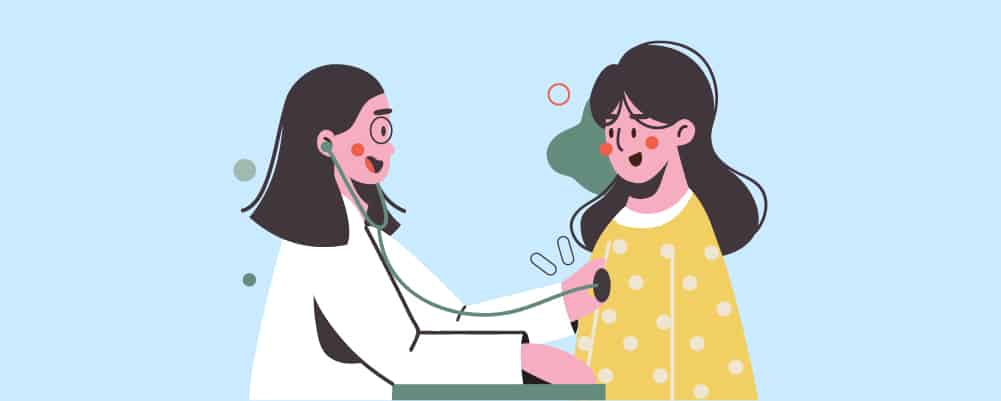
The average US adult has around three cups of coffee a day, containing up to around 280 milligrams of caffeine. A healthy adult can comfortably have up to around 400 milligrams of caffeine a day without it significantly impacting the blood sugar levels.
Caffeine also raises the levels of epinephrine, a stress hormone, which prevents your cells from being able to process as much sugar.
Regular high caffeine consumption has been shown to negatively impact insulin sensitivity in individuals with type 2 diabetes. In simple terms, it can dramatically raise insulin and blood sugar levels in individuals suffering from the disease.
While there is a chance that overconsumption of caffeine might negatively impact your insulin sensitivity, there are other properties in coffee that have the complete opposite effect.
The rapid transition to drinking a lot more coffee might produce an atypical or more emphasized response in the body, allowing you to better process glucose or sugar.
However, caffeine will affect every person differently. So if you find yourself struggling to gain control over your blood sugar levels, you might want to adjust the amount of caffeine in your diet accordingly until things level out.
Less Likely To Develop Parkinson’s Disease
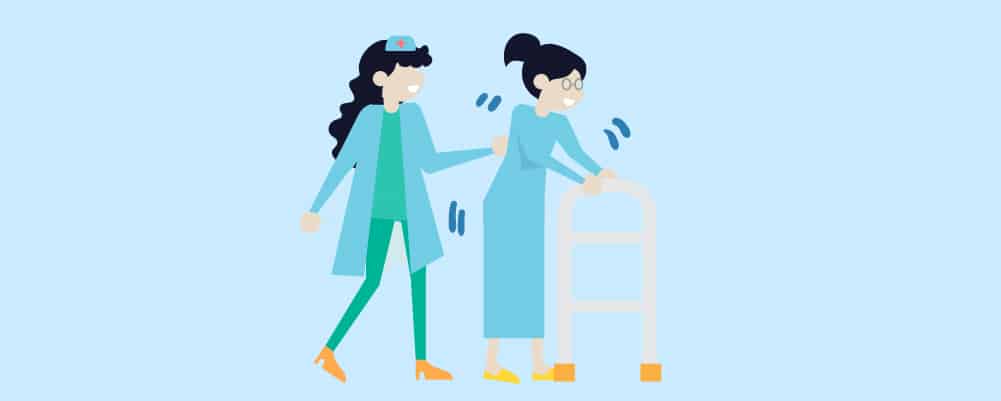
Parkinson’s Disease is a debilitating neurodegenerative disorder. Not only is drinking coffee a great way to wake up but it is also linked to a lower chance of developing Parkinson’s Disease. It can also help those with the disease to better control their movements.
Data suggests that drinking coffee works to reduce the risk of developing Parkinson’s disease, with the majority of studies stating that three cups of coffee a day is a great and beneficial dose.
Other studies have also highlighted that men benefit more than women do from being coffee drinkers. Stating a 60% reduction in the risk of developing Parkinson’s amongst male coffee drinkers.
A potential gender-specific benefit might be explained via underlying genetic and hormonal factors and the generally lower frequency of the disorder in women. Many studies have also suggested that there is a competition between caffeine and estrogen that may be at fault for this difference.
Additional studies are required to further understand the types of associations, as well as to clarify all gender interactions and differences between both hormones and coffee compounds.
Your DNA May Be Stronger
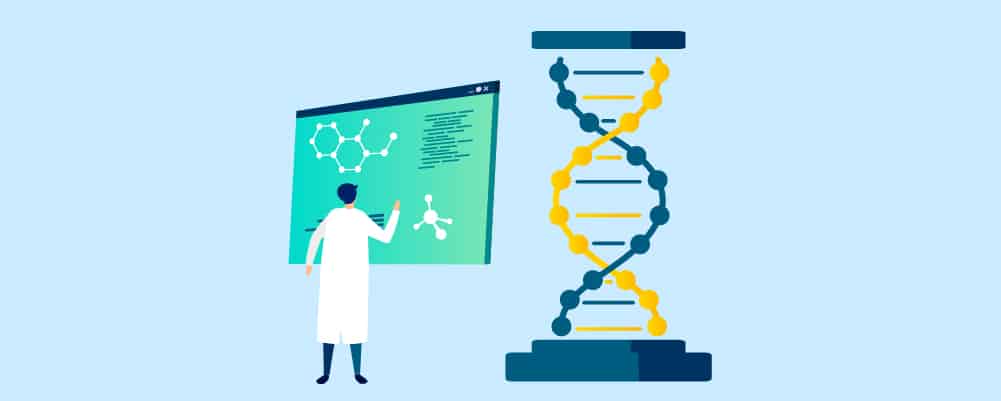
Regularly drinking coffee has also been known to contribute to the overall integrity of DNA.
Repeated coffee consumption has been closely associated with a reduced background for DNA strand breakage. It’s important to note that though this is true, coffee cannot directly repair your DNA, and is not a cure for life-threatening diseases like cancer.
However, coffee can reduce the amount of cellular damage that could lead to such diseases as it binds to the broken DNA that occurs when a natural or chemical change is present in the strand.
So, not only does it taste good, but it also offers a whole host of incredible benefits for your DNA!
The overall effect of coffee will vary depending on the specific DNA makeup of an individual. Because of this, there are people in the world who cannot process caffeine and must avoid any type of coffee beverage.
DNA breakage is relatively normal and may be caused by factors including UV light or cell function. The type of coffee that you drink also plays a significant part.
Dark roast coffee is the richest coffee in terms of compounds, and if consumed, usually decreases the breakage in all DNA strands which naturally occur. However, these can also lead to cancer or tumors if they aren’t quickly repaired by your cells.
Your Odds Of Getting Colon Cancer Could Reduce

Coffee has lots of compounds that can contribute to ensuring our health. Some researchers have recently demonstrated that two coffee compounds, cafestol, and kahweol, have stopped the growth of kidney and prostate cancer cells in a lab study.
There is also mounting evidence that shows coffee consumption can lower the risk of developing colon cancer. Coffee contains several compounds that are both anti-inflammatory and antioxidant that may actively work against cancer.
In fact, one in 25 women will go on to develop colon cancer in their lifetime. Researchers have discovered that either decaf or regular coffee drinkers were around 26% less likely to develop colon cancer.
In a study, participants that drank at least four cups of coffee a day were 52% less likely to die from this type of cancer, and 30% less likely to die from any other cause during the study.
Though it’s pretty difficult to claim any type of causality between reduced mortality risk and drinking cups of coffee, there was a noticeable reduction in the number of deaths caused by colon cancer in individuals who drank at least this much coffee each day.
You May Decrease Your Risk Of Getting Alzheimer’s Disease

Coffee is also known to support brain health. Coffee helps to protect the brain against different and highly progressive neurodegenerative disorders like Alzheimer’s and Parkinson’s.
Alzheimer’s disease leads to impaired thinking and memory loss. Due to the nature of Alzheimer’s disease, there is currently no known cure. However, small changes to your lifestyle and treatment can slow the progression of the disease.
Coffee doesn’t mitigate or fight the disease as some medications do, but recent studies have suggested that regular coffee consumption can decrease your risk of developing Alzheimer’s.
Researchers found that individuals without any memory loss who also drank more than the average amount of coffee were put at less risk of developing any of the pre-stage symptoms of Alzheimer’s such as mild cognitive impairment.
It’s also important to mention that nearly two-thirds of Americans living with this disease happen to be women. The caffeine provided by two cups of coffee could provide significant protection against developing the condition.
Researchers have also found that women above the age of 65 who regularly drank two or three cups of coffee per day were far less likely to develop any of the symptoms associated with the onset of dementia.
Boost Metabolism

Coffee is a staple ingredient in supplements for better maintenance of weight loss and fat burning and is also the cause of much lower diabetes risk.
Coffee is one of the few substances in the world that is known to mobilize fats from your fat tissues and increase your metabolism as a result. There are a few biologically active substances that usually find their way into the final coffee drink.
Some of them can affect your metabolism, including:
- Caffeine – is a core stimulant in any coffee drink.
- Theobromine – a stimulant often found in cocoa and coffee.
- Theophylline – is a second stimulant found in cocoa and coffee, with the added benefit of being an effective asthma treatment.
- Chlorogenic Acid – this is one of the main biologically active compounds in coffee.
Caffeine works to stimulate the nervous system, sending a direct signal to the fat cells that instruct them to break the fat down. You also need to consider your resting metabolic rate (RMR) which is a key part of losing weight. The higher the rate is, the easier it’ll be for you to boost your metabolism and lose weight.
Some studies have shown that caffeine has the power to increase RMR anywhere from 3 to 11 percent, where larger doses have much more of an effect.
A lot of the metabolism increase is caused by the increase in fat burning. However, the effect is far less obvious in overweight or obese individuals.
Can Increase Brain Function
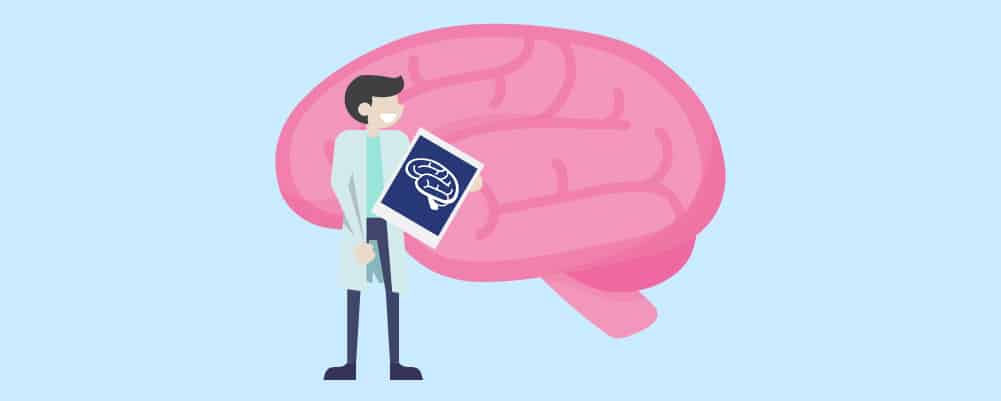
Provided you don’t drink so much that you start to feel quite jittery, coffee has the power to help our brains work better.
Some research into the effects of coffee on brain function shows that coffee can have many benefits for more long-term cognitive health, but this opinion is subject to change.
By itself, caffeine might be enough to reap the full mental benefits of drinking coffee. However, researchers have found that there are additional compounds in coffee that work to contribute to these effects.
Healthy daily caffeine consumption remains around the 4 or 5 cup mark (around 400 milligrams) which prevents lots of potentially dangerous side effects. Caffeine is known to stimulate the CNS and release neurotransmitters like dopamine, serotonin, and noradrenaline.
Caffeine is also a great lead toward resting brain entropy. This is essential to healthy brain function, and high levels of it point to higher processing abilities. If you were to experience an increase in this, it may even suggest a more prominent capacity to process information.
Defending on how much of it you consume, caffeine might have a significant impact on brain function including:
- Alertness
- Attention
- Concentration
- General mental function
- Learning abilities
- Limiting depression
- Mood
- Vigilance
- Well-being
Caffeine might also cause some disruption to brain function to the point where it disturbs sleep, but this usually only occurs in more sensitive individuals.
Summary

These are some of the most prominent health benefits that coffee might have after regular consumption.
It’s hard to imagine a life without drinking coffee and thankfully, you don’t need to find out! There’s something very soothing about sipping a cup of joe at any time of the day.
Coffee is an extremely popular beverage that has been extensively studied throughout time for its variety of health benefits, including promoting weight management, increasing energy levels, enhancing athletic performance, and protecting the body against chronic diseases.
More notably, however, coffee can also protect against diseases like Parkinson’s or Alzheimer’s. While it cannot cure such an invasive disease, it can help to reduce or prevent some of the symptoms in different individuals.
Many people might need to limit the intake of caffeine such as those who are breastfeeding or pregnant, children, and individuals suffering from particular health conditions.
For the majority of people, it is safe to drink coffee each day. But it is always best consumed in moderation to prevent exposure to a whole variety of negative health issues. Sticking with around three cups of coffee each day is a safe amount for many adults.

